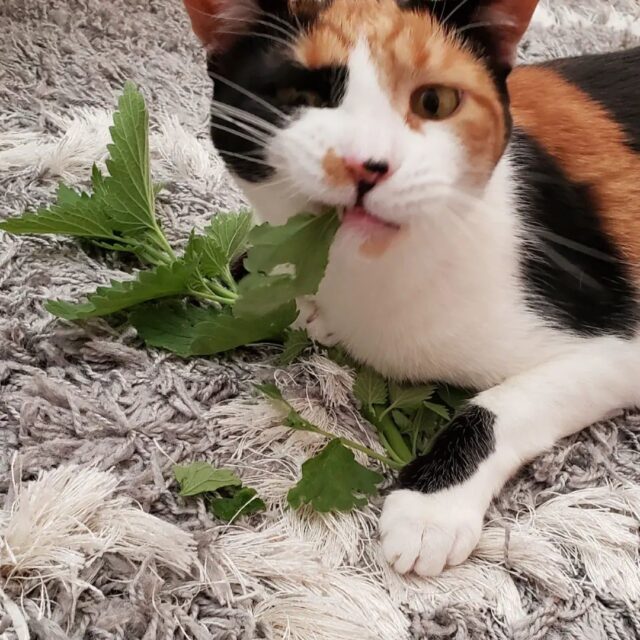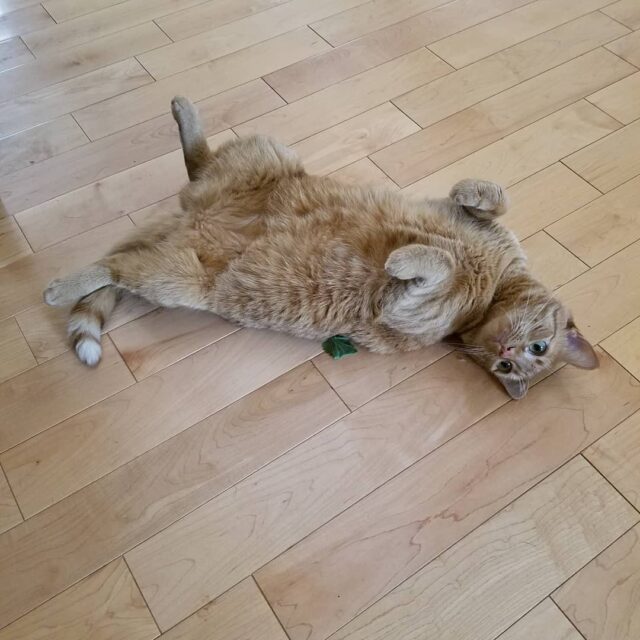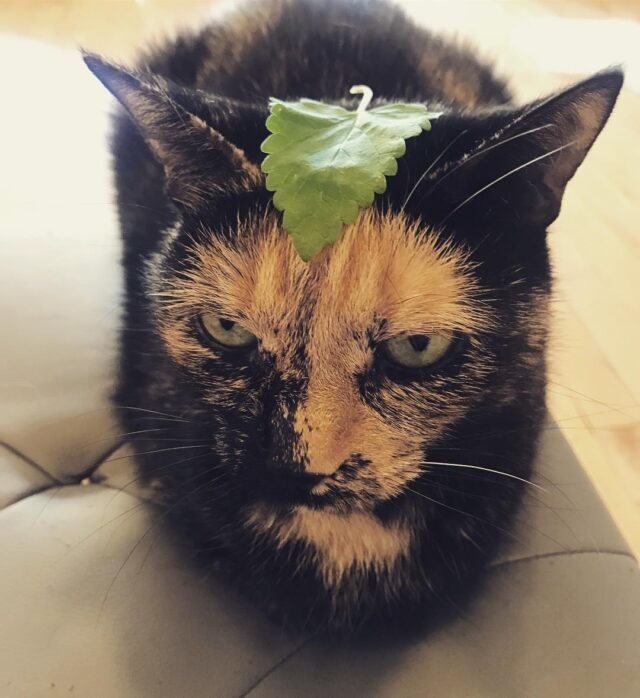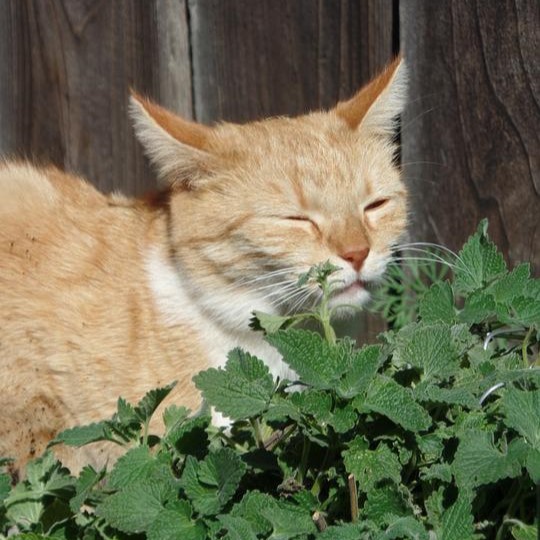Some kitties like catnip. Others really like catnip. You know the cats I’m talking about. They roll all over the leaves and stems, wiggling, drooling, and leaving a shredded mass of damp, wilted plant bits in their wake.
It turns out there is a scientific reason some cats do this. In addition to a pleasant intoxicated feeling, the Nepeta cataria plant also produces a natural pesticide to help cats ward off mosquitos. When torn or crumpled, the leaves release insect-repelling compounds into the air, coating the cat’s body.

How Does Catnip Repel Mosquitos?
Catnip is the most popular kitty intoxicant, but a few other plants, including valerian and a species of kiwifruit called silver vine, also cause cats to act cray-cray. The common factor is a class of figure-eight-shaped molecules called iridoids, including nepetalactol and nepetalactone. When produced by catnip and silver vine plants, these chemicals naturally ward off insects such as mosquitos.
Research shows that damaging the leaves of the catnip and silver vine plants “substantially increases iridoid emission.” This pest-repelling benefit could explain why cats tear, shred, and crumple fresh catnip (in addition to the whole getting high thing).
RELATED: Funny Cats On Catnip: The Photos And The Facts

Plants As Insecticides
Humans and other animal species have likely always benefitted from the naturally-occurring insecticides found in certain plants. Chrysanthemum extract is a pest-repelling trick people have used for generations. Countless birds and animals roll in citrus leaves to protect themselves from bugs. Lemurs even rub millipedes over their bodies as a form of parasite treatment.
But cats seem to be the only ones lucky enough to have their opioid reward centers activated at the same time!

Should You Grow Fresh Catnip?
Catnip or Nepeta cataria is one of several species of weedy herbaceous plants referred to as catmints. Although native to Eurasia, it can grow in just about any temperate environment. The leaves are aromatic, giving off an odor attractive to cats but that some humans describe as “skunky.”
It is a hardy plant that grows best in full sun but can survive in partial shade and poor soils. While rarely chosen for its beauty, it does produce small white flowers with pale purple or pink spots in the late spring through fall. Catnip is perfectly safe for other pets such as dogs and rabbits. It is even beneficial for many wild species, including birds, bees, and butterflies.
RELATED: Does Your Cat Go Bonkers For Catnip? Find Out Why (Or Why Not)

N. cataria may not be the most attractive-looking or lovely-smelling plant, but your cat will thank you for adding it to your garden!
Featured Image via Instagram
